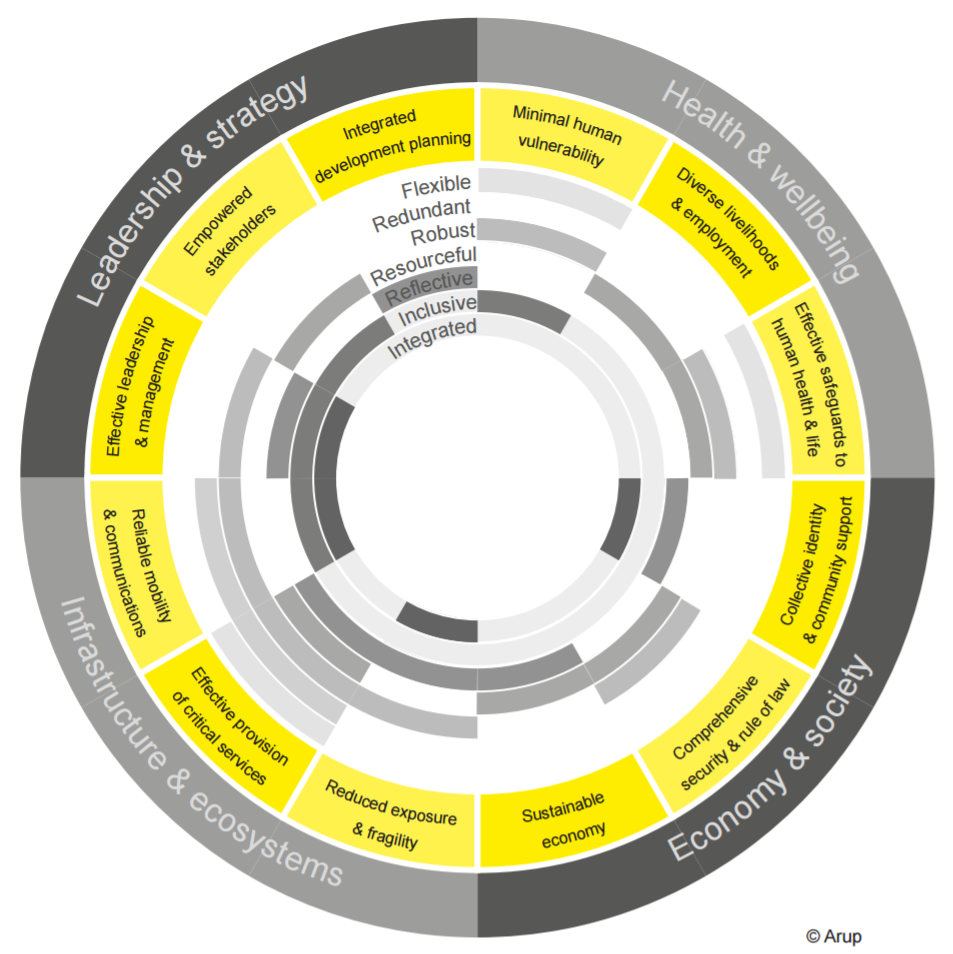Research
City Resilience Framework – City Resilience Index

This framework published by the Rockefeller Foundation as part of their 100 Resilient Cities Campaign is intended to form the basis of a tool that should enable all of us interested in city resilience to convene around a common understanding of that idea, and begin to ‘baseline’ what matters most for making cities more resilient. Both the framework and the index are intended to facilitate a process of engagement with and within cities that generates dialogue and deeper understanding. Ultimately, this will lead to new ideas and opportunities to engage new actors in civil society, government and business on what makes a city resilient.
The wellbeing of the world’s vast global population relies daily on a web of institutions, infrastructure and information. Uncertainty and pressure – caused by food, water and energy security, climate change, disease, economic fluctuation, urbanisation and social unrest – all pose challenges to urban living.
The City Resilience Framework establishes:
- An accessible, evidence-based definition of resilience
- Four aspects of resilience (health and wellbeing, economy and society, leadership and strategy, systems and services)
- Twelve indicators by which resilience can be understood
The research brings together evidence and knowledge from over 150 sources of literature, 14 city case studies and fieldwork in six cities. The fieldwork drew on the input of those in government, businesses and civil society groups in Semarang (Indonesia), New Orleans (USA), Concepción (Chile), Surat (India), Cali (Colombia) and Cape Town (South Africa).
City Resilience Index
http://publications.arup.com/Publications/C/City_Resilience_Framework.aspx
